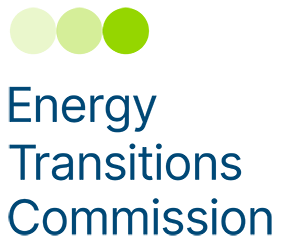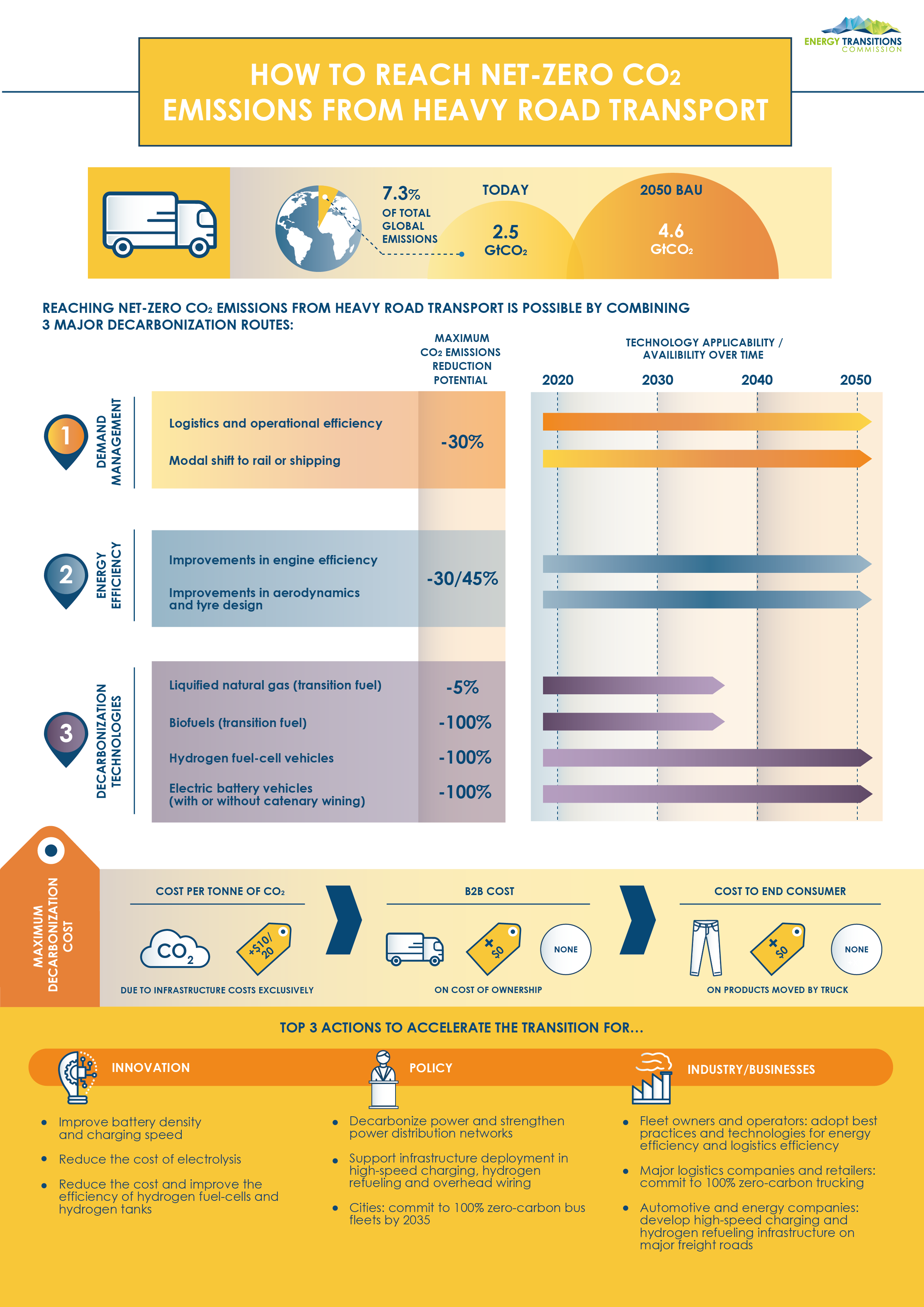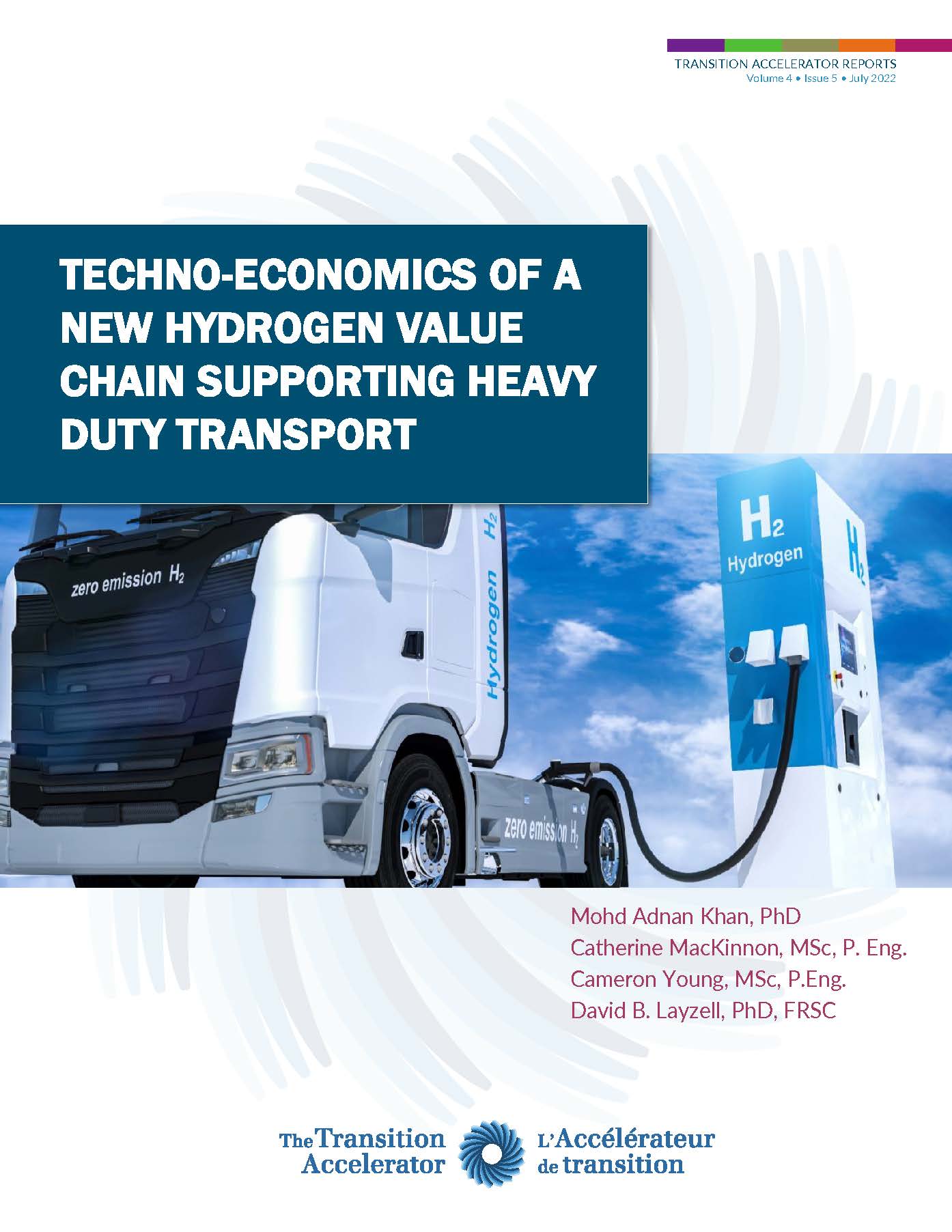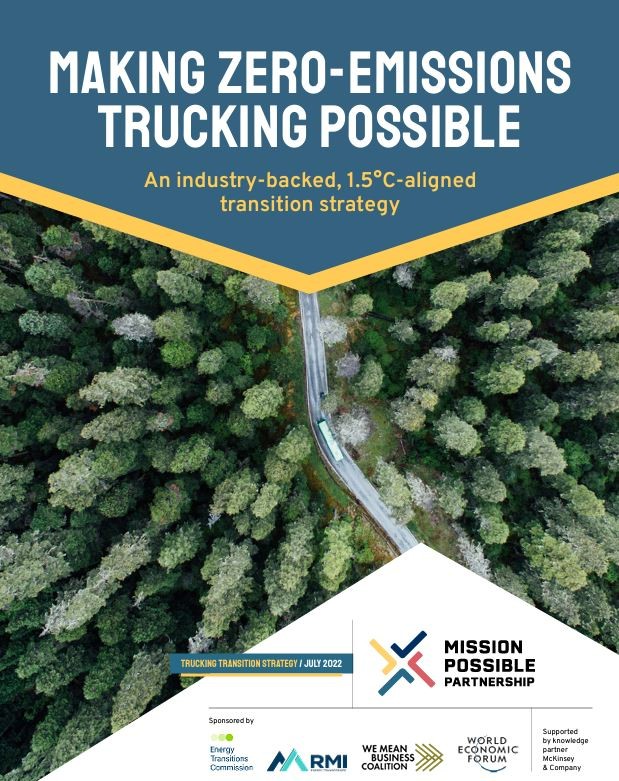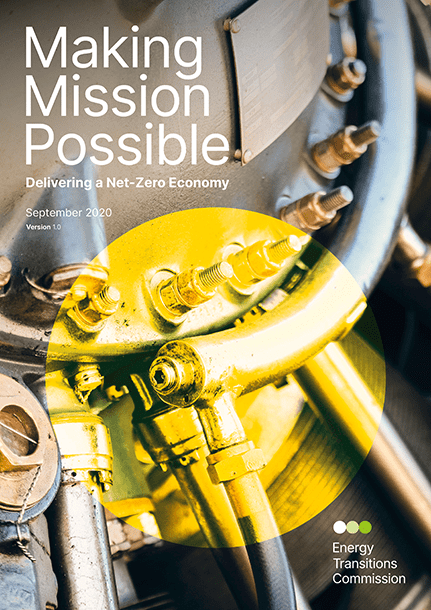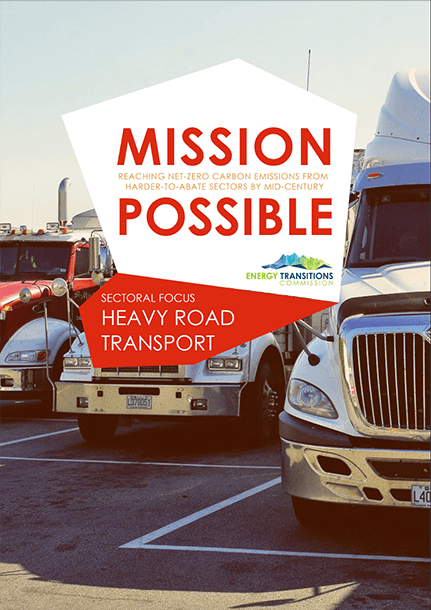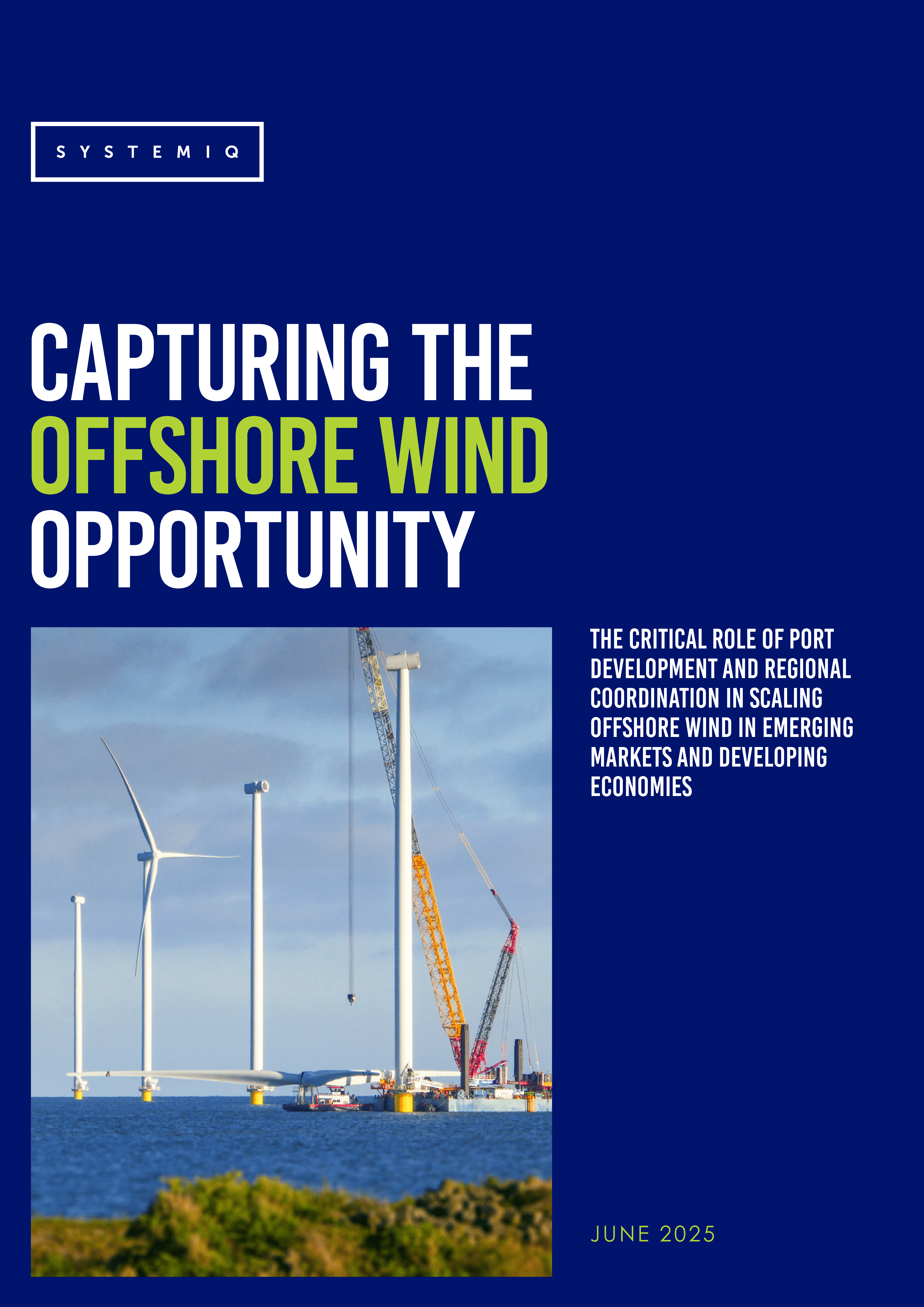Trucking
The path to decarbonisation in heavy-duty road transport is relatively clear: electric vehicles will deliver huge increases in efficiency compared to internal combustion engines and will likely become the dominant technology. The balance between battery electric vehicles (BEVs) and fuel-cell electric vehicles (FCEVs) remains uncertain and will depend on future developments in battery technologies.

Road freight will benefit from technology developments in the automotive sector. The total cost of operation of electric drivetrain vehicles is expected to fall below that of internal combustion engine vehicles during the course of the 2020s. The cost advantage will arise first for city buses and for lighter, shorter-distance trucks. It will eventually extend to very-long-distance trucks by the end of the decade. To accelerate the deployment of zero-emissions buses and trucks, governments have a critical role to play in the build-up of the recharging and refuelling infrastructure in cities and along major freight corridors.
The fragmented structure of the industry and the importance of upfront costs for small businesses will likely slow progress towards full decarbonisation. In view of this, it is also essential to curb traffic volumes through improved logistics efficiency and modal shift from road to rail and shipping, which could bring down emissions by up to 30%.
In the context of the Mission Possible Platform, the ETC works with the Clean Road Freight Coalition, convened by the World Economic Forum to encourage multi-stakeholder collaboration along the trucking value chain. It aims to address issues related to technology developments, infrastructure deployment and the economics of the transition to zero-emissions road freight.
